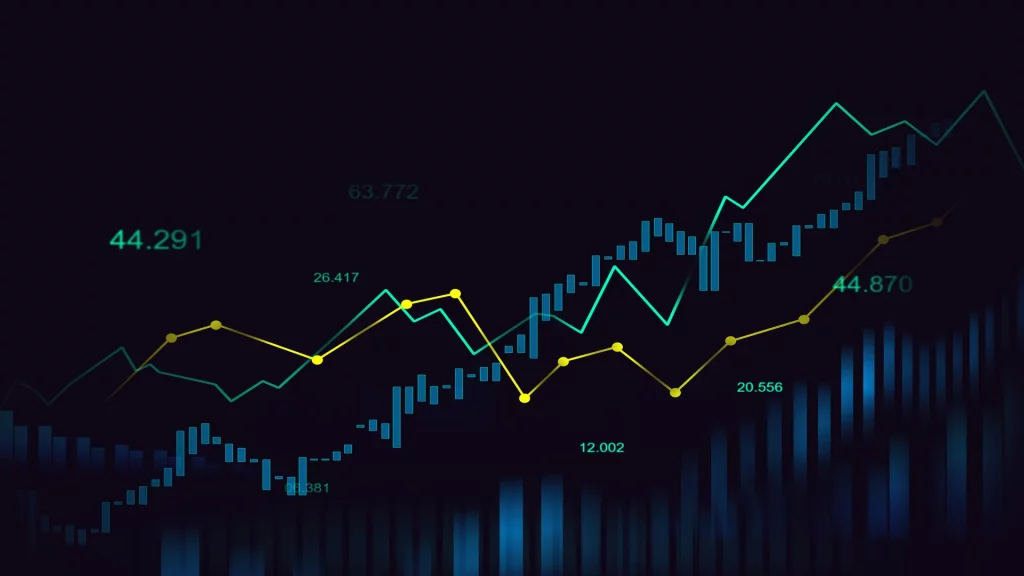Introduction: The Rise of High-Growth Tech in the 2025 Market Landscape
In 2025, technology continues to define the frontier of economic transformation. Artificial intelligence, cloud computing, quantum processing, edge networking, and automation are not just trends—they’re tectonic shifts redefining industries. High-growth tech stocks, propelled by innovation and structural demand, remain investor darlings. But as these companies post meteoric gains, questions around valuation intensify. Are we seeing justified optimism or speculative overreach? This article identifies several of the most prominent high-growth tech stocks and presents nuanced expert insights into their valuation, growth potential, and the fine line between opportunity and overvaluation.
Identifying Today’s High-Growth Tech Leaders
To pinpoint the true leaders in high-growth tech, one must look beyond market cap and scan for exponential revenue growth, product scalability, R&D pipelines, and strategic positioning in key innovation sectors. In 2025, five names repeatedly surface in analyst reports, hedge fund holdings, and tech-focused ETFs:
- NVIDIA (NVDA)
NVIDIA has morphed from a GPU maker into the AI engine of the global economy. With dominance in data center accelerators, its role in generative AI infrastructure, robotics, and high-performance computing has only grown. The company’s revenue has doubled over the past 18 months, with margins soaring on enterprise AI demand. - Palantir Technologies (PLTR)
Palantir, long polarizing due to its secretive clientele and complex valuation model, has finally broken out. With commercial adoption of its AI-driven data platforms expanding into manufacturing, healthcare, and energy, Palantir’s narrative has shifted from defense contractor to indispensable enterprise software provider. - CrowdStrike (CRWD)
As cyber threats grow in complexity, CrowdStrike’s Falcon platform has seen surging enterprise uptake. Its endpoint protection-as-a-service model, combined with predictive AI threat modeling, has kept annual revenue growth above 40%, while pushing toward profitability. - UiPath (PATH)
Robotic Process Automation (RPA) remains a critical lever for enterprise efficiency. UiPath, once dismissed as a niche player, has solidified its lead in enterprise automation platforms, now integrating advanced AI for dynamic task handling, document understanding, and predictive workflows. - Arm Holdings (ARM)
Arm’s recent relisting and resurgence as the brains behind mobile, IoT, and now AI-chip architectures, have returned it to investor radar. With Qualcomm, Apple, and others using Arm’s designs as their backbone, its royalty-driven model benefits exponentially from device proliferation and edge computing demand.
Valuation Debate: The Core of the Conversation
Investors often struggle to value high-growth tech stocks, as traditional price-to-earnings metrics fail to capture their runway potential. Instead, price-to-sales (P/S), forward revenue guidance, and TAM (Total Addressable Market) dominance become central.
For instance, NVIDIA trades at a forward P/E near 45 in 2025—elevated by historical standards, but arguably justified when its data center AI business is growing at triple digits. Analysts at Morgan Stanley argue that NVIDIA deserves a “scarcity premium” due to its infrastructure-critical role in AI buildouts, much like AWS did in its early days. Meanwhile, skeptics at Bernstein warn of saturation risks and unsustainable pricing in AI hardware markets, especially with AMD and Intel sharpening their competitive offerings.
Palantir, on the other hand, trades at 20x forward sales—a ratio that suggests extreme optimism. Yet bulls argue that the shift to margin-rich, scalable commercial software revenues justifies the valuation. Goldman Sachs analysts cite Palantir’s increasing modularization and vertical-specific tools (e.g., Palantir for Manufacturing, Foundry for Pharma) as game changers, enabling faster customer acquisition and stickier ARR.
CrowdStrike is frequently held up as a valuation role model among high-growth SaaS players. Trading at a more tempered 12x forward sales with clear profitability momentum, it’s seen as a “Rule of 40” paragon—combining growth and margin discipline. Experts from RBC Capital Markets cite its cross-sell efficiency, high retention, and expanding modules as valuation stabilizers.
UiPath, though innovative, faces skepticism around execution. While revenue growth remains strong, losses and slowing customer expansion outside the U.S. have drawn scrutiny. Jefferies analysts call it “a show-me story,” pricing in only partial success. Still, its evolution into an end-to-end intelligent automation platform—with integrations into Microsoft Copilot and ServiceNow—keeps bulls intrigued.
Arm, while not a new name, is in its own valuation league. As of Q2 2025, it trades above 80x earnings due to its light-asset model and license-based scale. Barclays suggests Arm should be viewed less like a semiconductor company and more like a “picks and shovels” enabler for the entire AI ecosystem, especially at the edge. With edge AI seeing explosive growth in automotive, industrial IoT, and mobile, that lens makes the valuation more palatable.

Thematic Tailwinds Driving Their Momentum
- Artificial Intelligence Integration
The AI boom isn’t isolated to language models—it’s a multi-layered tech wave. NVIDIA, Arm, and Palantir are all riding different layers of that stack: hardware, architecture, and software orchestration. The common thread? AI enables scalable, sticky, and high-margin revenue models. Any company embedding AI deeply into its offering can capture both tech and enterprise tailwinds. - Cybersecurity Arms Race
Geopolitical instability and hybrid cloud expansion have made cybersecurity a non-negotiable budget line for enterprises. CrowdStrike’s proactive defense model, powered by AI threat detection and real-time telemetry, offers a differentiated value proposition as traditional antivirus becomes obsolete. - Automation and Cost Efficiency
With macroeconomic uncertainty, companies are doubling down on cost control and productivity—making RPA a mission-critical tool. UiPath’s automation suite, now increasingly AI-enhanced, capitalizes on this demand with cross-industry applicability. - Edge Computing and IoT Scaling
Arm’s value rises as computing moves closer to the edge—where latency-sensitive applications like autonomous driving, wearables, and smart factories dominate. Its low-power, high-efficiency architecture is ideal for this next-generation computing environment.
Risks and Red Flags: What Investors Should Monitor
Valuation aside, high-growth tech stocks carry operational and macroeconomic risks. Regulatory pressure, especially around AI and data privacy, could impact Palantir and CrowdStrike. Competition is intensifying in every vertical—AMD is gunning for NVIDIA, SentinelOne challenges CrowdStrike, and even Microsoft and Google are entering automation.
Market sentiment shifts can also cause multiple compression. If interest rates rise again or recession fears reemerge, high-multiple stocks will be the first to be repriced. Investors must weigh growth durability against valuation elasticity.
Additionally, execution risk remains paramount. For example, UiPath must prove it can scale globally with consistent onboarding and integration. Palantir must demonstrate that its modular enterprise tools can scale faster and broader than legacy software suites.
Expert Strategies for High-Growth Tech Investing
- Use a Tiered Allocation Model
Rather than going all-in on the most hyped names, experts recommend a tiered model. Anchor the portfolio with a leader like NVIDIA, blend with mid-tier momentum players like CrowdStrike, and add speculative upside through smaller, emerging platforms like UiPath. - Monitor Insider Transactions and Institutional Flow
High insider selling or waning institutional interest may be early warning signs. Tools like 13F filings and Form 4 data help track hedge fund sentiment and management confidence. - Look Beyond Headlines to Metrics that Matter
Focus on net revenue retention, free cash flow margins, and customer acquisition costs (CAC). High-growth is only sustainable when unit economics are strong. CrowdStrike’s 120%+ NRR and Palantir’s improving margins are positive signs. - Consider ETFs for Diversification
For those seeking exposure with reduced single-stock risk, consider ETFs like the ARK Innovation ETF (ARKK), Global X Robotics & AI ETF (BOTZ), or iShares Expanded Tech Software ETF (IGV). These offer baskets of innovative firms while dampening the impact of volatility from any one name.
Conclusion: High Growth, High Stakes, High Potential
High-growth tech stocks offer some of the most compelling upside in the equity markets, especially in a world driven by digital transformation, AI, and automation. Yet, with great growth comes great valuation scrutiny. Navigating these waters requires a blend of forward-looking optimism, disciplined financial analysis, and a sharp understanding of thematic currents. By focusing on leaders like NVIDIA, Palantir, CrowdStrike, UiPath, and Arm—and applying expert strategies to manage valuation risk—investors can align themselves with the future of technology while keeping both feet firmly on the analytical ground.












































